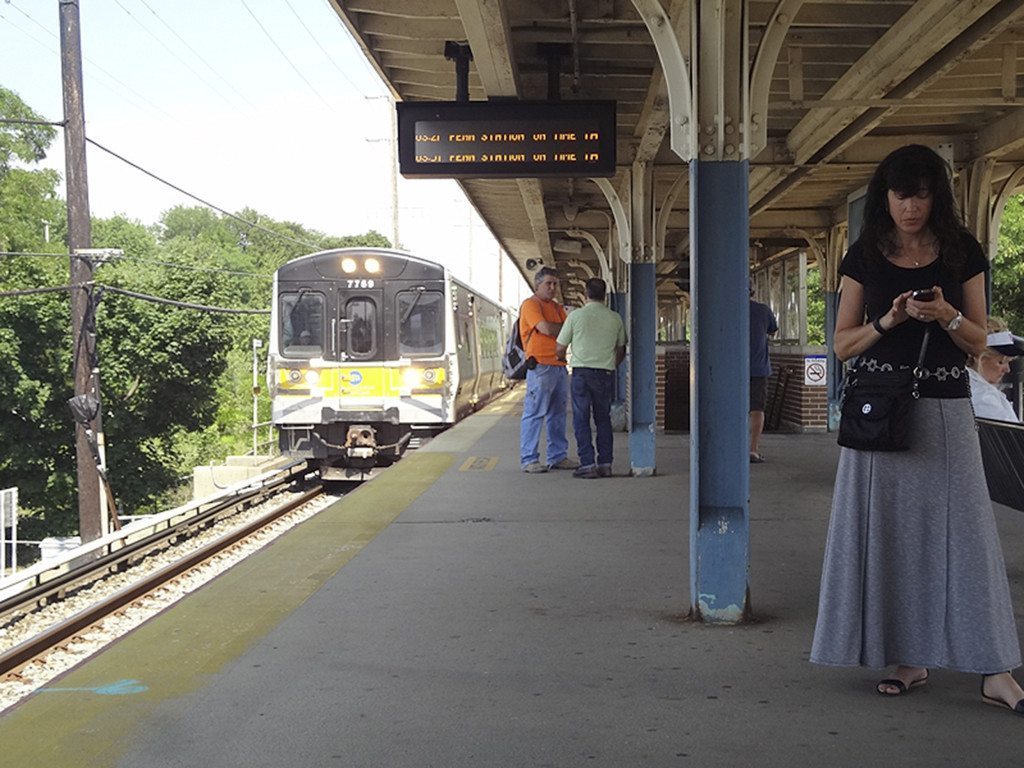Even as they hoped the parties would reach a last-minute settlement, commuters across Long Island were scrambling last week to devise alternate plans for getting to work if Long Island Rail Road’s 5,400 workers go on strike July 20. And they were vocal in their anger with the Metropolitan Transit Authority. The strike, it seems, has roused commuter ire over a wide range of LIRR issues, from timeliness to cleanliness to costs.
“Unbelievable…unbelievable is the word that I’d use to describe the job the MTA is doing, and I’m not using that in a positive way,” said Scott Langdon, as he disembarked from his long daily commute to a job with an investment firm in Manhattan. “Not real happy with the MTA lately, no.”
It has been a long time since Long Island commuters faced a railroad strike—20 years and one month exactly—and the last time was relatively painless. In 1994, LIRR employees walked off the job on Friday, June 17, 1994. The union and the MTA cut a deal Saturday night. The trains were running again by Sunday.
That happy outcome seems less likely this time around, with the strike deadline coming on a Sunday. There might be a last-minute settlement, but MTA leaders have already ignored the recommendation of two separate federal panels to accept the union’s offer. New York State Gov. Andrew Cuomo passed the buck to Congress. Congress has refused to intercede. A strike could backfire on either party—or on any politician who gets involved.
According to MTA CEO Thomas F. Prendergast, the MTA is holding out because the union’s offer will overly burden LIRR passengers.
“I strongly believe that a resolution can be reached in a fiscally responsible manner,” Prendergast wrote to Congress.
Jennifer Ellison, waiting at the Massapequa Park station for an eastbound train home after work, wasn’t buying it. “Don’t they realize that the public depends upon them?” she asked. “The MTA needs to do the right thing and settle with the unions and start running a tighter ship.” She believes MTA brass is wasting money.
In their own letter to Congress, union leaders pointed out that LIRR workers have been on the job without a contract since 2010.
“The Metropolitan Transportation Authority (MTA) has demanded benefit cuts and other concessions from workers,” union leaders stated. “MTA management has rejected recommendations from two Presidential Emergency Boards that would end the dispute. Union members ask for nothing more than what both these neutral federal boards have already recommended.”
At the Massapequa station, the strike potential unleashed a host of complaints, mostly directed at those in charge.
“I don’t think the MTA is run very well at all…the stations are a mess and the trains are always mega-late,” Ellison said. “Learn to cut corners and spend wisely and not just jack up the fares every other month.”
Langdon, a Massapequa resident, likewise expressed disgust with “being constantly bled dry.” “The constant rate hikes are insane. I mean, the train fares are bad enough, but two bucks to ride a bus? Are you kidding?” he said. “Meanwhile, the infrastructure is crumbling all around us.
“They’re finally doing something about the condition of the Massapequa train station, which has been outdated and dilapidated for ages,” he continued, “but this multi-million dollar facelift is taking forever, and they’re not even half done.”
Ellison voiced similar frustration: “Really, someone ought to run an audit on the MTA and find out what they’re doing with their millions, because I don’t think it’s going back into the business like it should.”
– With additional reporting by Marlo Jappen






























